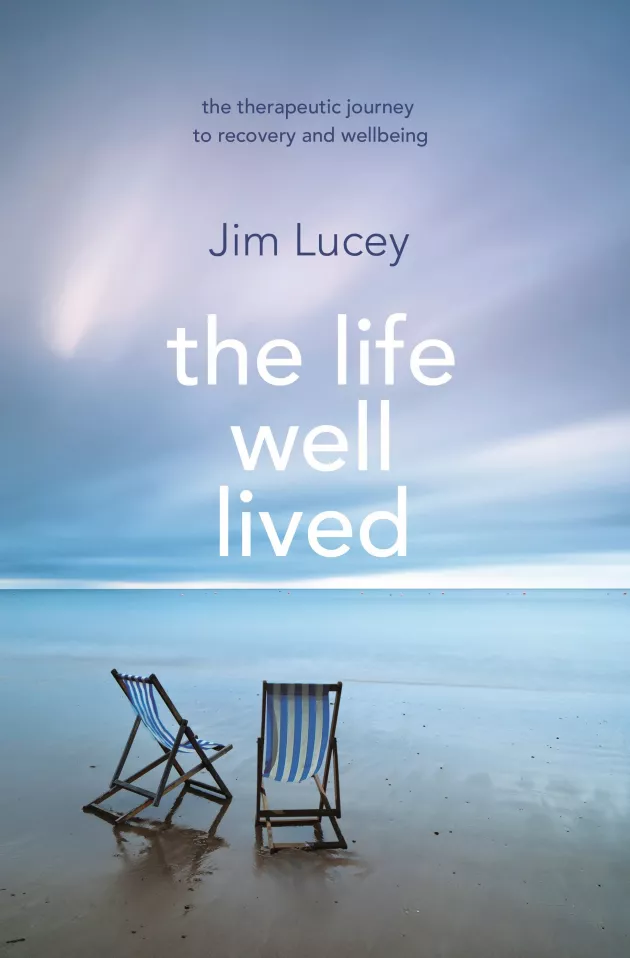The Life Well Lived by Professor Jim Lucey
Published on 30th November 2020

Do you know anyone suffering with a mental health problem, someone in your family, neighbourhood or workplace? Maybe you have been stressed at a particular time in your life and needed help or were frightened, as someone you love presented as not being in their right mind.
The truth is mental health problems are more common than we are prepared to admit. Statistics show one in four adults will experience a psychiatric disorder in their lifetime and one in six will experience a mental health disorder in the next twelve months. More shocking are the statistics on children’s mental health as one in three children between the ages of 14 and 18 is experiencing a mental health disorder at the present time. Suicide between the ages of 14 to 18 is twice the frequency of our European compatriots.
Professor Jim Lucey points to our ‘response to stress as not allowing for meaningful acknowledgement or meaningful interventions’ and therefore we will all suffer. In his book The Life Well Lived he asks what can be done and explores talking and listening therapies as a route to recovery giving the reader an expert view of the modern era of psychotherapy. The book is written in plain english without the jargon.
The therapy he describes is not easy and the book comes with the caveat that it provides general information and not individual solution. Written in two parts, the first looks at what it is to be well and how therapy can help achieve recovery and wellness.
It lists “five ways to well being” as described by the New Economics Foundation and they are: connect, be active, live in the present moment, keep learning and give. I was particularly moved by the broader description of ‘give’ to include giving time, giving ground, giving way, and even giving up.
The author identifies stress as a cause of breakdown and the need to develop a capacity for resilience to allow for healing and restoration. New therapies including Acceptance and Commitment Therapy (ACT), Community Reinforcement Approach, and Family Training (CRAFT), Compassion Focused Therapy (CFT).
Fear and misinformation, a hangover from asylum days of incarceration has lead to stigma and a silence around mental health. We have only begun to talk openly about it and the Professor believes we still have a long way to go to really change attitudes to mental health as stigma and prejudice is often the experience of those in recovery trying to reinstate themselves back into their communities.
Professor Lucey brings the good news that there are successful treatments available for those suffering mental anguish and trauma. He introduces the reader to six different therapies for treatments in the areas of depression, self harming, trauma, anxiety, eating disorders and addiction.
Recognising that sometimes a multidisciplinary approach including medicinal and other treatments is necessary, the goal is to achieve recovery and regain what has been lost and begin to recognise what does and does not serve the individual in order to deal with stress into the future.

The second part of The Life Well Lived deals with real people telling individual stories and follows case studies to illustrate the process and the journey to recovery.
The stories are about people and their families who are suffering great levels of distress dealing with a variety of stress related disorders. You can travel with Tara, Laura, Robert and Barbara, Arthur, Patricia, and Joseph on the journey to mindful recovery. This book is about “getting well and staying well and building up the resilience necessary to bounce back after distress and to be able to do it time and again.” If you are interested in these therapies and how they came about then this is the book for you.
Our children and young people need to develop increasing skills to deal with life’s challenges; think alcohol and drug abuse in society today. Our communities need investment to provide the appropriate services and supports. The wisdom and expertise of the author is matched only by the kindness and love he advocates for those suffering negative mental health. Unfortunately society does not give mental health issues the support it deserves. Professor Lucey wants people to hear the good news that new therapies are available and they work.
As a lover of Christmas and all things Christmassy I have not reached the age I have without knowing that Christmas can bring its own stresses and that some people dread it. If you feel you are falling off the wellness wagon and the five steps to wellness aren’t working for you, you may need to talk to someone. Ring a family member, a friend, your doctor or the Samaritans (freephone116223). Keep talking and let’s mind ourselves and each other as we approach the new style ‘meaningful’ Christmas.
Healthy Ireland, a government led initiative, is a national strategy to improve health and wellbeing, placing a focus on prevention, individual awareness and keeping people healthy for longer.
Access eBooks/eAudiobooks on your phone, tablet or reader. Once you have installed the app, search for Dublin in the ‘Library’ field provided and then sign in using your library membership card number and PIN.
Watch our how to video on Borrowbox. Members of other library authorities will need to log in using a different link.
Submitted by Liz B. in Pearse Street Library.